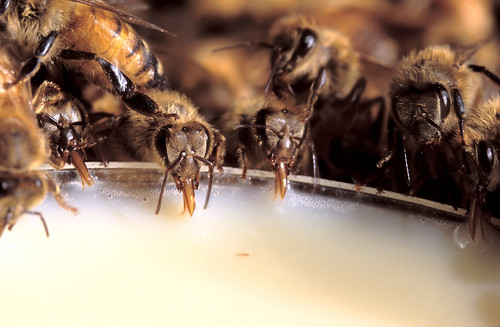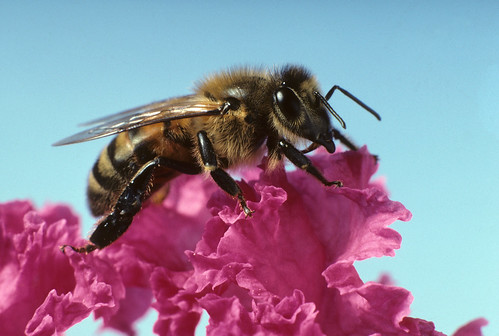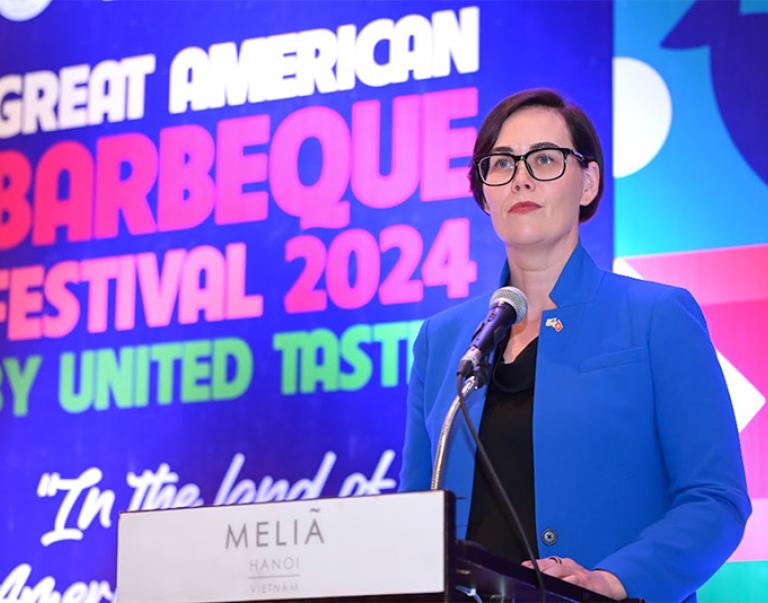
This post is part of the Science Tuesday feature series on the USDA blog. Check back each week as we showcase stories and news from USDA’s rich science and research portfolio.
The fact that honey bees are a critical link in pollinating plants, especially our crops, has become better known to the public in the past few years. In exchange for their labor, flowers provide bees with pollen and nectar as food. But few people wonder what’s available for bees to eat when there are few plants blooming in the late fall and early winter.
During such times of the year, with little natural food available, honey bee colonies usually fade a little. But this is exactly the time of year when beekeepers want their colonies to be producing lots of healthy, robust bees ready to be trucked to California to plunge into pollinating millions of almond blossoms in February.
Oddly enough, while beekeepers have been feeding their colonies for hundreds of years, we still do not know the exact nutritional components of the perfect bee diet to replace pollen and nectar.
So honey bee expert and research leader Gloria DeGrandi-Hoffman and her colleagues at USDA Agricultural Research Service’s (ARS) Carl Hayden Bee Research Center in Tucson, Arizona, partnered with entomologist Gordon I. Wardell of Tucson-based S.A.F.E. (Sensible Alternatives for the Environment) R&D, LLC, to develop a new and better artificial diet based on scientific data and research into honey bee taste preferences.
That was in 2002. All in all, the team tested nearly a thousand different combinations of proteins and carbohydrates before honey bees gave a formulation their stamp of approval in 2007, and the MegaBee diet came to market. It has been a growing success ever since.
Today, researchers have come to recognize the role of poor nutrition in honey bees’ inability to deal with the many stresses they experience such as pathogens, parasites and sublethal exposure to pesticides. Such stresses may include extended periods of time when colonies have access to only a single plant or crop for food. Supplemental feeding with an artificial diet like MegaBee may be one of the keys for beekeepers to help their bees survive extended periods when pollen is in short supply.




